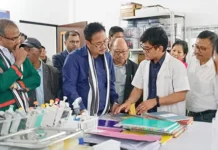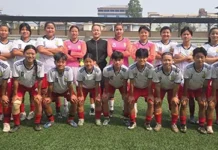NEW DELHI, 22 Nov: A bill to set up a higher education regulator, which will replace bodies such as the UGC, is listed for introduction in the winter session of Parliament, set to commence on 1 December.
According to a Lok Sabha bulletin, the proposed legislation has been christened the Higher Education Commission of India Bill.
The Higher Education Commission of India (HECI), which was proposed in the new National Education Policy, looks to replace the University Grants Commission (UGC), the All India Council for Technical Education (AICTE) and the National Council for Teacher Education (NCTE).
While the UGC oversees non-technical higher education, the AICTE oversees technical education, and the NCTE is the regulatory body for teachers’ education.
The HECI is proposed to be set up as a single higher education regulator, but medical and law colleges will not be brought under its ambit. It is proposed to have three major roles – regulation, accreditation and setting professional standards.
Funding, which is seen as the fourth vertical, is not proposed to be under the HECI. The autonomy for funding will stay with the administrative ministry.
The concept of HECI has been discussed before in the form of a draft bill.
A draft Higher Education Commission of India (Repeal of University Grants Commission Act) Bill, 2018, which sought to repeal the UGC Act and provided for the setting up of the Higher Education Commission of India, was put in the public domain in 2018 for feedback and consultation with stakeholders.
Renewed efforts to make the HECI a reality were then initiated under Dharmendra Pradhan, who took over as the union education minister in July 2021.
Underlining the relevance of a single higher education regulator, the NEP-2020 document says, “The regulatory system is in need of a complete overhaul in order to reenergise the higher education sector and enable it to thrive.”
It adds that the new system should ensure that the distinct functions of regulation, accreditation, funding, and academic standard setting are performed by distinct, independent, and empowered bodies.(PTI)


